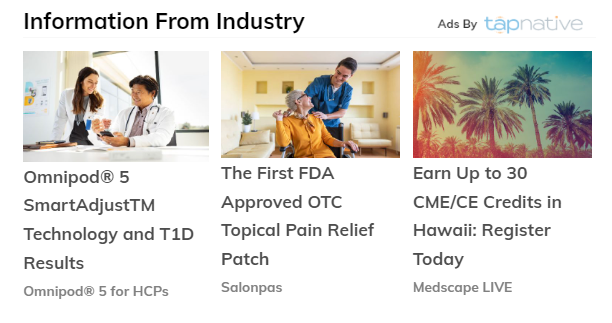Almost all healthcare marketers are obsessed with understanding how their digital ads are being received by the healthcare professionals. Let’s just say it so it’s clear, HCPs view internet ads with a critical and discerning eye because they are being bombarded. Here are some key insights into how they perceive and interact with targeted digital ads:
Relevance and Value– HCPs prioritize ads that are highly relevant to their specialty and provide valuable information. They are more likely to engage with ads that offer clinical data, research findings, or practical solutions to medical problems.
Credibility and Trust- The credibility of the source is crucial. Ads from well-known and respected medical organizations or publications are more likely to be trusted and considered credible. Also, they are less likely to interact with an ad on a sports or political site then a health, medical or wellness site.
Educational Content- HCPs appreciate ads and landing pages that include educational content, such as webinars, whitepapers, or continuing medical education (CME) opportunities. These types of ads can be seen as an extension of their professional development and a requirement.
Conciseness and Clarity- Given their busy schedules, HCPs prefer ads and landing pages that are concise. Clear, straightforward messaging that quickly conveys benefits & key points are most effective. These are very smart folks so embrace brevity.
Regulatory Compliance- Ads that adhere to regulatory standards and include necessary disclaimers are viewed more favorably. HCPs are well aware of industry regulations for disclosure and expect ads to comply.
Personalization- Personalized ads that cater to the specific interests or specialties of HCPs are more engaging. Targeted advertising that reflects their specific needs and challenges capture their attention more effectively.
Avoiding Intrusiveness- Non-intrusive ads that do not disrupt their workflow are preferred. HCPs tend to have a negative view of ads that are overly intrusive or interruptive, such as pop-ups, animated Gifs, or auto-play videos. Static, content style ads generate the highest engagement rates. Also, ads which appear in the content well are often engaged with more than banner ads which may appear on the right rail or outside the content area.
Peer Recommendations- Ads that include testimonials or endorsements from peers can be more persuasive. HCPs value the opinions and experiences of colleagues and key opinion leaders and are more likely to trust ads that feature peer recommendations.
Access to Detailed Information- While brief and clear ads are important, providing easy access to more detailed information (e.g., through links or downloadable content) is appreciated.
HCPs often want to delve deeper into the content if it piques their interest. Landing pages should be brief but offer deeper dives in specific topics. Think one step at a time…. a wide funnel that gets thinner and allows HCPs to navigate their own path and explore freely.
Here is an example of how Tap Native targeted HCP ads are presented to target groups of physicians and healthcare pros.

Clear and concise messaging is the key. More on the topic:
Examples of DTC and HCP healthcare advertising
